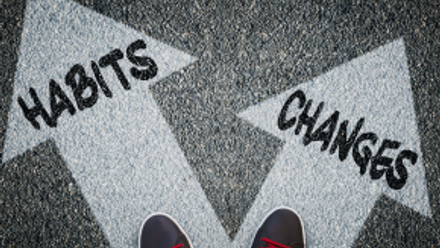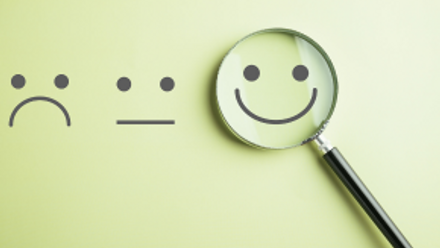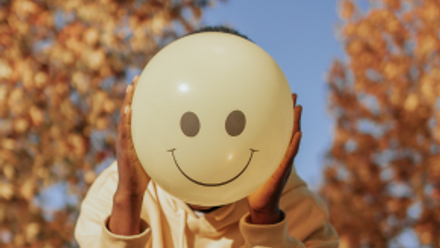Is the Mental Health Crisis Bigger Than COVID-19?
In the first year of the COVID-19 pandemic, global prevalence of anxiety and depression increased by a massive 25%, according to a scientific brief released by the World Health Organization (WHO).
Easily, one of the most overlooked aspects of recovery from COVID-19, anxiety, and depression, is our mental well-being and mental health.
It’s been said that our bodies can only be as healthy as our minds. This couldn’t be more true than in this current era where so many people are suffering from anxiety and depression. In light of this, it’s more important than ever to take time to focus on yourself, practice self-care, and do the inner work of healing.
To understand how the mental health crisis in the United States has manifested as a result of the pandemic, we’re going to look at some statistics that are sure to be eye-opening.
A Growing Problem
In today's society, it is not unusual to find a person who experiences anxiety and depression as a result of the COVID-19 pandemic.
In fact, the National Institute of Mental Health notes that
1 in 5 adults experienced mental health conditions each year.
As if that wasn't bad enough, many people living with a mental health condition also have to deal with financial instability, relationship issues, and physical limitations.
As times have changed so has the importance of mental health and providing the healing tools as many people are experiencing trauma directly or indirectly as result of this pandemic. There is an important need for mindfulness practices within business along with understanding healing from trauma.
The Stats
Below are the top statistics to know about how this recent pandemic has affected our Mental Health:
- Boston College reports that Anxiety has increased to 50% and Depression by 44%. These rates have increased by 6x since before the pandemic!
- Online research to help increase one's Mental Health has raised by nearly 500%.
- Anxiety screenings increased by 422%.
- Of the people taking Anxiety screenings, 79% scored with symptoms of moderate to severe anxiety.
- Mental health screenings increased by 500%.
Mindfulness to Increase Well-Being
Formal mindfulness training can be costly and difficult to find, but there are many resources available for informal and low-cost mindfulness techniques. The external world is full of distractions, vying for our attention … It's up to each and every one of us to learn how to manage our internal world.
For simple tips on how to implement mindfulness into your daily routine, check out this free guide.
With the increasing knowledge about anxiety and depression - combined with the effects from the COVID-19 pandemic - it is crucial for us to discover new ways to bring more mindfulness into our being. It's not just about learning the benefits of being mindful but also how mindfulness can help people who experience anxiety and depression, address their trauma from both sides of the pandemic, and understand what's happening in and around them.
Benefits of Mindfulness Meditation
We live in an increasingly stressful and fast paced world where it's easier than ever to get swept up in your mind. By practicing mindfulness meditation, we can bring ourselves back to the present moment and truly live in the now.
As little as 10 minutes of meditation each day can help decrease our stress levels and boost self-awareness. Our minds are capable of healing trauma by allowing us to face that which scares us and accept what is, both of which mindfulness will teach you how to do. Thought tracing is a proven tactic for improved dialogue within the mind. There are also physical benefits such as reduced blood pressure and improved cardiovascular health from meditating daily too!
How to use Mindfulness Meditation
Practicing mindfulness can be as simple as connecting with your breath and bodily sensations. Next, work to avoid judgment of those sensations.
Meditation doesn’t have to be difficult; start by gently closing your eyes, and focus on how you feel. What thoughts are coming to the surface? What does your body feel like? Connect with all 5 of your senses.
Meditation has the power to relieve stress by just taking 10 minutes each day to do something for yourself. Not only does this practice take away anxiety but it also provides benefits such as improved concentration, more creativity, and even boosts your immune system. It's easy to keep practicing mindfulness throughout your day which leads to a much happier lifestyle when you prioritize SOUL/Life Balance as a way of being.
How Our Devices Negatively Affect Our Mental Well-being
Just as screens negatively impact our physical health, they can also have profound effects on our mental health. It is important to take breaks from your devices and do some deep breathing. The key is finding balance between doing what we need to do for ourselves mentally and physically, being mindful about how we use our phones/tablets, and exercising mindfulness when browsing social media. The more time we spend engaging in these activities without acknowledging their influence on us, the more likely it will become a habit that leaves us feeling drained by screen time.
Many of us are disconnected from nature and by nature I mean so much more than simply just going outside for the sake of going on a walk. How can you challenge yourself to feel more connected with the rhythm of the Earth? Sometimes it can be as easy as slowing down to listen to the sound of the wind, witnessing the beauty of a butterfly swinging in front of your face or even just sun gazing as the sun rises or sets.
Living In The Moment
It’s important to stay present with life and keep SOUL/Life Balance at the forefront so you can be healthy on all levels. SOUL/Life Balance consists of taking care of your physical body (eating right, getting enough sleep, exercising), but also being mindful and intentional with our spiritual needs as well.
For more on SOUL/Life Balance, check out this free guide with 3 tips on how to reframe Work/Life Balance to SOUL/Life Balance.
Closing
One may make the argument that our Mental Health Crisis is bigger than the pandemic itself. No matter where you stand on this specific statement; the most important thing we can all agree on is addressing the state of our society … The state of our collective mental well-being. Small shifts on a daily basis to practice SOUL/Life Balance will lead to combating the experience of anxiety and depression.
Improving the mental well-being in your workplace culture is easier than it may seem. To learn more about how I can help in your quest of addressing the Mental Health Crisis, check out my website SamKabert.com.
To a More Fulfilling Life,
Sam
P.S. For more, check out this FREE guide with the 3 Undeniably Simple Tactics to Practice SOUL/Life Balance.






